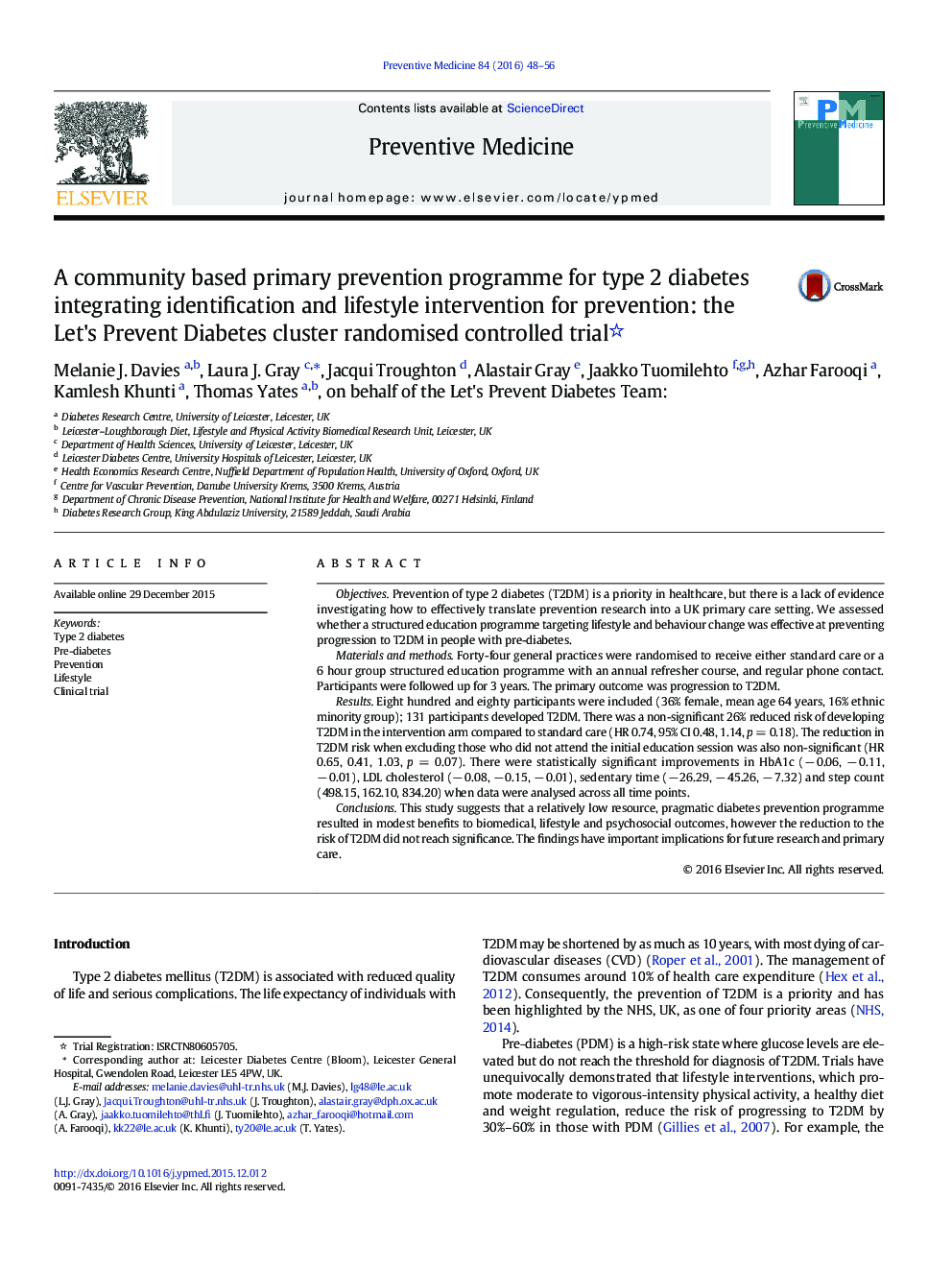| کد مقاله | کد نشریه | سال انتشار | مقاله انگلیسی | نسخه تمام متن |
|---|---|---|---|---|
| 6046355 | 1581630 | 2016 | 9 صفحه PDF | دانلود رایگان |
- To date there has been a dearth of evidence for T2DM prevention in a UK community setting.
- This is the first large scale RCT to evaluate the effect of a T2DM prevention intervention (Let's Prevent) in a UK community setting.
- This study showed a non-significant 25%-35% reduction in the progression to T2DM at 3Â years with a number of improvements in secondary outcomes and health behaviours.
- Let's Prevent provides a model of T2DM prevention that can be directly implemented and commissioned within primary care or public health services using existing infrastructure for the delivery of structured education.
- Future research should focus on increasing uptake to screening and attendance at education sessions.
ObjectivesPrevention of type 2 diabetes (T2DM) is a priority in healthcare, but there is a lack of evidence investigating how to effectively translate prevention research into a UK primary care setting. We assessed whether a structured education programme targeting lifestyle and behaviour change was effective at preventing progression to T2DM in people with pre-diabetes.Materials and methodsForty-four general practices were randomised to receive either standard care or a 6 hour group structured education programme with an annual refresher course, and regular phone contact. Participants were followed up for 3 years. The primary outcome was progression to T2DM.ResultsEight hundred and eighty participants were included (36% female, mean age 64 years, 16% ethnic minority group); 131 participants developed T2DM. There was a non-significant 26% reduced risk of developing T2DM in the intervention arm compared to standard care (HR 0.74, 95% CI 0.48, 1.14, p = 0.18). The reduction in T2DM risk when excluding those who did not attend the initial education session was also non-significant (HR 0.65, 0.41, 1.03, p = 0.07). There were statistically significant improvements in HbA1c (â 0.06, â 0.11, â 0.01), LDL cholesterol (â 0.08, â 0.15, â 0.01), sedentary time (â 26.29, â 45.26, â 7.32) and step count (498.15, 162.10, 834.20) when data were analysed across all time points.ConclusionsThis study suggests that a relatively low resource, pragmatic diabetes prevention programme resulted in modest benefits to biomedical, lifestyle and psychosocial outcomes, however the reduction to the risk of T2DM did not reach significance. The findings have important implications for future research and primary care.
Journal: Preventive Medicine - Volume 84, March 2016, Pages 48-56
